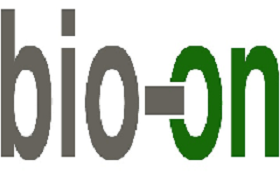Features
Bio-on and University of Hawaii to study how to produce bioplastic from wood and household waste
Date: 2015-09-04 10:54:19.0
Author: Bio-on
 Honolulu, HAWAII -- Bio-on and University of Hawaii today signed an exclusive global research contract to further develop the technology for the production of the revolutionary bioplastic PHAs: the objective is to use lignocellulosic materials (wood processing waste) and domestic or agricultural waste as the raw material. Bio-on will invest 1.4 million dollars in the Manoa (HI) laboratories for this project.
Honolulu, HAWAII -- Bio-on and University of Hawaii today signed an exclusive global research contract to further develop the technology for the production of the revolutionary bioplastic PHAs: the objective is to use lignocellulosic materials (wood processing waste) and domestic or agricultural waste as the raw material. Bio-on will invest 1.4 million dollars in the Manoa (HI) laboratories for this project.
Bio-on and University of Hawaii will create an industrial process that will enable Bio-on over the coming years to further increase its technological offer, which has a unique selling point in the sector: the wide variety of waste products from which its high performing PHAs can be made. Wood and domestic or agricultural waste are therefore added to the sugar beet and sugar cane, glycerol (biodiesel waste) and potato processing waste co-products already used. The industrial plants, part of the licenses granted by Bioon, will have the capability of using all of these materials, with limited adjustments, making them highly flexible.
PHAs, or polyhydroxyalkanoates, are bioplastics that can replace a number of traditional polymers currently made with petrochemical processes using hydrocarbons. The PHAs developed by Bio-on guarantee the same thermo-mechanical properties as oil-based polymers with the advantage of being completely naturally biodegradable.
“We are enthusiastic to participate in the development of Bio-on's technology,” says Robert BleyVroman, Chancellor of the University of Hawaii Manoa USA. We are also pleased to accept Bio-on's investment of 1.4 million dollars, which will make our scientists at theHawaii Natural Energy Institute School of Ocean and Earth Science & Technology University of Hawaii Manoa key players in the research into the green chemical industry at global level”.
“With this new contract, we are confirming a collaboration between Bio-on and UH active since 2008, which makes the research conducted in the USA on behalf of Bio-on one of the highest-level collaborations in existence,” explains Marco Astorri, Chairman of Bio-on S.p.A. “We are committing our funding and our technicians to support UH scientists in the technological expansion of the high performing biopolymers produced with Bio-on technology”.
The agreement between Bio-on and University of Hawaii adds an important building block to the construction of the platform for bioplastic production and the green chemical industry of the future. This agreement heralds the opening up of highly promising scenarios for the development and internationalisation of Bio-on's technology on new markets.
About Bio-on
Bio-On has developed an exclusive process for the production of a family of polymers called PHAs (polyhydroxyalkanoates) from agricultural waste (including molasses and sugar cane and sugar beet syrups). The bioplastic produced in this way is able to replace the main families of traditional plastics in terms of performance, thermo-mechanical properties and versatility.
Bio-On PHA is a bioplastic that can be classified as 100% natural and completely biodegradable: this has been certified in Europe by Vincotte and in the US by USDA (United States Department of Agriculture). The Issuer's strategy envisages the marketing of licenses for PHAs production and related ancillary services, the development of R&D (also through new collaborations with universities, research centres and industrial partners), as well as the realisation of industrial plants designed by Bio-On.
For further information about Bio-on, please visit the website here.
Displaying 3 keywords used to tag this article:
- patents
- enzymes
- carbon capture
